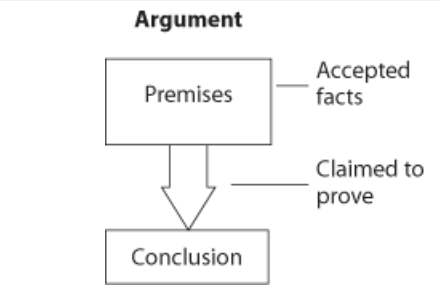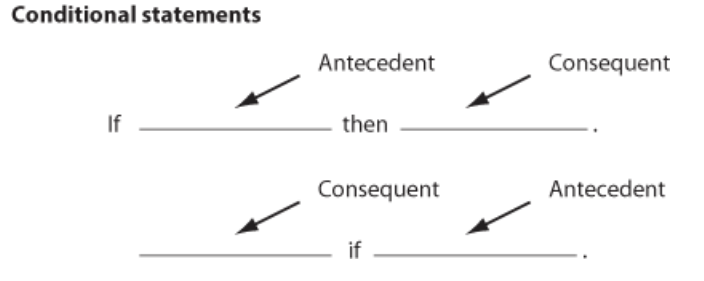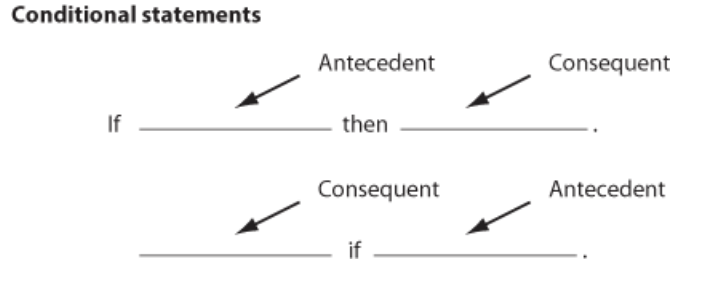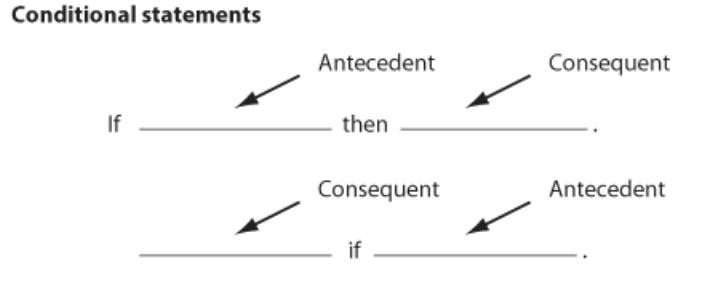Logic Chapter 1 Terms
1/36
Earn XP
Description and Tags
Name | Mastery | Learn | Test | Matching | Spaced | Call with Kai |
|---|
No study sessions yet.
37 Terms
Logic (1.1)
The science that evaluates arguments; history of, Logical operators, definitions of
argument (1.1)
one or more statements of which (the premises) are claimed to provide support for

good arguments (1.1)
premises really do support the conclusion
bad argument (1.1)
premises not do support the conclusion even though they are claimed to
statement (1.1)
A sentence that is either true or false
truth values (1.1)
the truth or falsity of a statement
premises (1.1)
statements that give evidence for a conclusion
conclusion (1.1)
statement that the evidence is claimed to support
conclusion indicators (1.1)
indicator words that provide clues in identifying premises and conclusion
premise indicators (1.1)
-since
-owing to
-as indicated by
inference (1.1)
ones own deduction given an argument
proposition (1.1)
an idea put forth; the statement
who is considered to be the "father of logic" (1.1)
Aristotle
modal logic (1.1)
logic on concepts such as possibility, necessity, belief, and doubt
warning (1.2)
form of expression that is intended to put someone on guard against a dangerous or detrimental situation
piece of advice (1.2)
makes a recommendation about some future decision or course of conduct.
opinion (1.2)
what someone happens to believe or think
Loosely associated statements (1.2)
lack a claim that one of them is proved by the others
report (1.2)
group of statements that convey information about some topic or event
expository passage (1.2)
begins with a topic sentence followed by one or more sentences that develop the topic sentence
illustration (1.2)
one or more examples intended to display what something means or how it is done
arguments from example (1.2)
argument that trys to prove something by giving examples of it
explanandum (1.2)
describes the event or phenomenon to be explained
explanans (1.2)
explains the event or phenomenon
conditional statement (1.2)
an if-then statement

antecedent (1.2)
statement immediately following the “if” in a conditional statement

consequent (1.2)
following the “then”

sufficient condition (1.2)
The condition represented by the antecedent in a conditional statement
necessary condition (1.2)
condition represented by the consequent